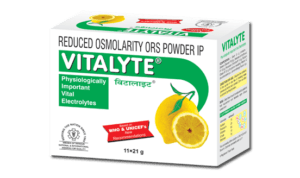 Each and every one of you should have experienced diarrhea at some point in time. It’s one of the inevitable symptoms that could affect people of all ages, infants to elderly people. Globally, around two billion cases of diarrhea are reported every year. Unfortunately, a majority of these cases are seen to be children of five years and below. Although diarrhea is not viewed as a dangerous health condition, the severity of the condition can range from a milder, acute condition, to a potentially life-taking one. Yes, there are deaths occurring due to diarrhea. These important facts about diarrhea make it important for us to understand the condition and ways to deal with it. Continue reading to know more…
Each and every one of you should have experienced diarrhea at some point in time. It’s one of the inevitable symptoms that could affect people of all ages, infants to elderly people. Globally, around two billion cases of diarrhea are reported every year. Unfortunately, a majority of these cases are seen to be children of five years and below. Although diarrhea is not viewed as a dangerous health condition, the severity of the condition can range from a milder, acute condition, to a potentially life-taking one. Yes, there are deaths occurring due to diarrhea. These important facts about diarrhea make it important for us to understand the condition and ways to deal with it. Continue reading to know more…
What Causes Diarrhea?
Remember, diarrhea will be characterized by abnormally watery stools. You cannot say it’s diarrhea if you pass stools of normal consistency, even if it’s very frequent. Also, breastfed babies will frequently pass loose stools. This is also not diarrhea.
In the medical field, there is a term called “functional diarrhea” for the cases where a clear cause cannot be identified. In a majority of cases, diarrhea is the result of an infection in an individual’s gastrointestinal tract. The organism causing infection can be a bacterium, a virus, or a parasite. In the developed nations, “Irritable bowel syndrome” is found to be the most common cause of functional diarrhea. Other common causes are as follows:
Microscopic colitis
Mal-digestion
Chronic infections
Certain drugs
Endocrine causes
Cancers
How is Diarrhea Treated?
Generally, mild cases of diarrhea will require no treatment as it would subside by itself. On the other hand, persistent and chronic cases will require your attention. You need to get it diagnosed and the underlying causes should be treated. Yes, of course, you need to treat the symptoms of your diarrhea.
Usually, the treatment would involve:
Rehydration
Anti-diarrheal medications
Antibiotics
Diet
Probiotics
The Significance of Rehydration:
For almost all cases of diarrhea, rehydration will be the key. As you should be aware, dehydration is one of the major complications of diarrhea, which is the result of excessive loss of electrolytes from your body. Dehydration will be commonly noted in adult diarrheal patients who are losing larger amounts of watery stools. The degree of dehydration will be higher when there is a limited intake of fluids. Also, it’s common in newborns and young children. This dehydration, when it’s moderate or severe, will lead to orthostatic hypotension, along with fainting or what you call it as light-headedness. Other problems that may result due to dehydration are:
Decreased urine output
Extreme weakness
Shock
Kidney failure
Confusion
Acidosis
Coma
So, how can you prevent or treat this dehydration due to diarrhea? Look below:
Oral Rehydration Solutions (ORS) for Dehydration:
As mentioned above, rehydration will be essential for patients suffering from diarrhea. For this purpose, you can make use of oral rehydration solutions, which are otherwise called as “ORS”. These are the liquids that have carbohydrates and electrolytes in it. Going back to history, we could find that the ORS was developed by the World Health Organization to instantly rehydrate the victims who were dealing with severe diarrhea due to cholera. The glucose (carbohydrates) in the solutions is important as it stimulates the small intestine to rapidly intake the fluids, as well as the electrolytes. The primary objective of the electrolytes present in these solutions will be to prevent or treat electrolyte deficiencies.
Today, there are several convenient, premixed oral rehydration solutions that are similar to the WHO-ORS available on the market for rehydration purposes. One such product is your “Vitalyte ORS” from PharmaSynth Formulations.
Vitalyte ORS to ease out your Diarrheal Discomfort:
Vitalyte ORS will give you the best treatment for your rehydration, thereby helping you ease out your diarrheal discomfort as they contain physiologically important electrolytes in them. The electrolytes that are present in this ORS are:
Sodium Chloride
Potassium Chloride
Sodium Citrate
Dextrose (carbohydrates)
Not only these, but each sachet of your Vitalyte ORS will also contain vitamin C, which would help regenerate your digestive cells.
Why Vitalyte ORS?
Vitalyte ORS will give the best results in terms of rehydration because they are formulated based on the recent and latest recommendations by the World Health Organization and UNICEF. The regular oral rehydration solutions contained sodium and glucose contents to give it the osmolarity of 311 mOsm/l. Although we can’t deny the fact that they were effective enough to revive hydration without any adverse reactions, they were not efficient enough to decrease the stool output. Needless to say, a watery stool output for a longer duration will cause discomfort in the sufferer and hence, it’s important to decrease the excretion while trying to replace the electrolytes.
To address this, the UNICEF has recently launched a new improved formula that is as safe as the traditional one when at the same time exhibiting an increased efficacy to reduce the stool output and duration of your diarrhea. Moreover, this formula also reduces the number of incidences of vomiting in patients.
All these effects are possible with the new improved formula because it has low osmolarity than the traditional one (245 mOsm/l). Such a low osmolarity is proven to be effective not only in the treatment but also in the prevention of dehydration in the children suffering from any type of diarrhea. Thus, these solutions will decrease the need for IV fluid administration and in-turn hospitalization. Furthermore, this formula has been proven to be safe for use in children with cholera. The lesser the need for IV supplementation, the lesser the incidence of secondary infections and hence, the lower the medical costs.
When can you take Vitalyte ORS?
You can take Vitalyte ORS for the symptoms of dehydration linked to diarrhea due to various reasons. In addition, you can also take if you are not dehydrated but showing one of the following symptoms:
Increased thirst
Reduced urine output
Dry mouth
Fatigue
Decreased urine volume
Headaches
Dry skin
Dizziness

